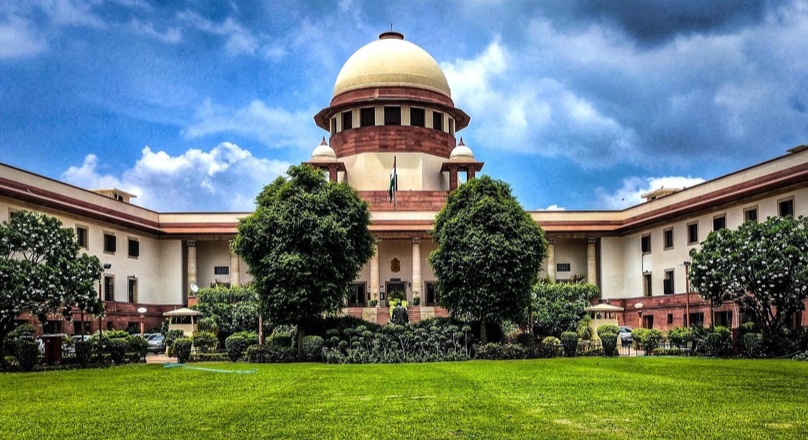In a recent ruling, the Supreme Court bench comprising Justice Dipankar Datta and Justice PK Mishra provided a comprehensive summary of the legal principles governing compassionate appointments. The judgment reaffirmed that such appointments are an exception to the general rule of equality in public employment and must be strictly governed by established rules and legal precedents.
Key Legal Principles on Compassionate Appointments:
1. Exception to Equality in Public Employment: Compassionate appointments are granted on humanitarian grounds and serve as an exception to the principle of equal opportunity in government jobs. [(SBI v. Anju Jain, (2008) 8 SCC 475)]
2. Requirement of Governing Rules: No compassionate appointment can be made in the absence of explicit rules or administrative instructions. [(Haryana SEB v. Krishna Devi, (2002) 10 SCC 246)]
3. Limited Scope: Such appointments are permitted only in two exceptional circumstances—when the family faces an immediate financial crisis due to the death or medical incapacitation of the breadwinner. [(V. Sivamurthy v. UOI, (2008) 13 SCC 730)]
4. Immediate Relief Purpose: The objective is to provide immediate financial relief; therefore, appointments should be made without undue delay. [(Sushma Gosain v. UOI, (1989) 4 SCC 468)]
5. Strict Interpretation Required: Since compassionate appointments allow an entry into public service without a competitive process, they must be interpreted strictly. [(Uttaranchal Jal Sansthan v. Laxmi Devi, (2009) 11 SCC 453)]
6. Not a Right, but a Concession: Compassionate appointments are a privilege, not an entitlement. The applicant must meet all prescribed eligibility conditions. [(SAIL v. Madhusudan Das, (2008) 15 SCC 560)]
7. No Inheritance of Job: The right to seek a compassionate appointment does not pass down as inheritance. [(State of Chhattisgarh v. Dhirjo Kumar Sengar, (2009) 13 SCC 600)]
8. No Automatic Appointment Based on Descent: Appointments based purely on kinship violate constitutional principles. The scheme must be confined to its core purpose. [(Bhawani Prasad Sonkar v. UOI, (2011) 4 SCC 209)]
9. Financial Condition is Key: The death or incapacitation of an employee alone does not create an automatic right to a job. The family’s financial condition must justify the need for such an appointment. [(UOI v. Amrita Sinha, (2021) 20 SCC 695)]
10. Timely Application Required: The request for appointment must be made immediately or within a reasonable period. Delayed applications suggest that the family is not in immediate financial distress. [(Eastern Coalfields Ltd. v. Anil Badyakar, (2009) 13 SCC 112)]
11. No Guaranteed Equivalent Position: The purpose is financial relief, not to secure the same post as held by the deceased employee. Granting higher posts under compassionate grounds is legally impermissible. [(Umesh Kumar Nagpal v. State of Haryana, (1994) 4 SCC 138)]
12. Precondition: Financial Indigence: The fundamental requirement is that the family is in financial penury. Otherwise, compassionate appointment would become a reservation, violating Articles 14 and 16 of the Constitution. [(UOI v. B. Kishore, (2011) 13 SCC 131)]
13. No Endless Claim to Compassion: The policy does not create a perpetual right to employment. [(IG (Karmik) v. Prahalad Mani Tripathi, (2007) 6 SCC 162)]
14. Eligibility Criteria Must Be Met: Financial distress alone is insufficient. The applicant must also satisfy the eligibility criteria for the position. [(State of Gujarat v. Arvindkumar T. Tiwari, (2012) 9 SCC 545)]
15. No Post Reservation for Minors: Unless expressly permitted, vacancies cannot be reserved until a dependent child reaches adulthood. [(Sanjay Kumar v. State of Bihar, (2000) 7 SCC 192)]
16. Family Pension Is Not a Substitute: Receiving a family pension does not automatically disqualify a dependent, but it must be considered in assessing financial distress. [(Canara Bank v. Ajithkumar G. K., Civil Appeal No. 255 of 2025)]
17. Delayed Appointments Are Unconstitutional: Appointments granted years after the employee’s death or without verifying financial hardship violate Articles 14 and 16. [(NIT v. Niraj Kumar Singh, (2007) 2 SCC 481)]
18. Gainfully Employed Dependents Not Eligible: If the dependent is already financially independent, a compassionate appointment cannot be granted. [(Haryana PSC v. Harinder Singh, (1998) 5 SCC 452)]
19. Assessment of Financial Hardship: The family’s total financial resources (pension, terminal benefits, income from property, etc.) must be considered in assessing need. [(General Manager v. Kunti Tiwary, (2004) 7 SCC 271)]
20. Public Employment is Not Heritable: The scheme is meant to prevent immediate destitution, not to create a hereditary right to government jobs. [(UOI v. Shashank Goswami, (2012) 11 SCC 307)]
21. Income Slab Ensures Fairness: Fixing an income threshold reduces subjectivity and arbitrariness in decision-making. [(State of HP v. Shashi Kumar, (2019) 3 SCC 653)]
22. No Compassionate Appointment on Sympathy Alone: Courts cannot grant appointments based purely on sympathetic considerations. [(LIC v. Asha Ramchandra Ambekar, (1994) 2 SCC 718)]
23. Statutory Rules Are Supreme: No appointment can be granted in violation of statutory regulations, even if the candidate faces hardship. [(SBI v. Jaspal Kaur, (2007) 9 SCC 571)]
24. Employer Cannot Be Forced: Government agencies cannot be compelled to make a compassionate appointment against their policy. [(Kendriya Vidyalaya Sangathan v. Dharmendra Sharma, (2007) 8 SCC 148)]
This landmark judgment reaffirms that compassionate appointments are a discretionary relief, not an automatic entitlement. The ruling sets a clear legal precedent, ensuring that such appointments are granted strictly within the framework of constitutional principles and established guidelines.



